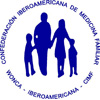Assessment of functional capacity of institutionalized elderly at Cipotanea - MG, Brazil
Resumo
Introdução: The growth of elderly population is a new challenge, especially in developing countries. Both low pensions and family difficulties to take care of them increase the need of institutionalization. To develop and implement curative and preventive health policies capable of meeting this growing demand, aiming at quality of life, become imperative.
Objetivos: To assess the level of independence and functional capacity in elderly institutionalized at Cipotanea, MG.
Metodologia ou descrição da experiência: A cross-sectional study was carried out in a long-term care institution at Cipotânea - a rural village in Brazil. The Katz Index was applied to 14 elderly who met the inclusion criteria, ie, they were in the age group above 60 years. The Index ranks adequacy in the six functions: bathing, dressing, toileting, feeding, transferring and continence. If present, each activity gets one point. Scores 5 and 6 indicate independence to perform daily activities, scores 3 and 4 indicate partial dependence and a score equal or lower than 2 implies the need for assistance, indicating an important dependence. Data were collected with the caregivers and showed up as percentage frequency distribution.
Resultados: Average age: 73.2 ± 8.8 years, average time of institutionalization: 6.5 ± 3.3 years; 64.3% female. Katz's Index showed 35.7% of independent elderly, 28.6% partially and 35.7% full dependent. Studies affirm the existence of large numbers of dependent elderly in institutions. This finding was confirmed in the present study in which 64.3% of institutionalized had some degree of dependence, whether partial or complete. Furthermore, that dependence may generate social isolation, physical inactivity and psychological impairment.
Conclusões ou hipóteses: Significant number of elderly are very dependent to perform activities of daily living, probably with some social and psychological disabilities. In order to prevent or minimize these side effects of dependence, actions shall be implemented, especially: the action of a multidisciplinary health team, the promotion of recreational activities and the encouragement to physical activity practice.
Palavras-chave
Texto completo:
PDF (English)Apontamentos
- Não há apontamentos.
Este periódico é de responsabilidade das associações:
Apoio institucional:







